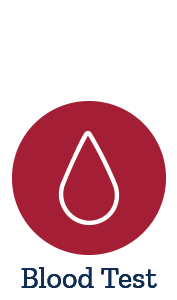- Science & Research
- Science News
- Newsletter
- 2006
- August 8

Newsletter
Newsletter
Fibrinogen adds to value of CRP levels for predicting cardiovascular events
 | ||||||||||||||||||||||||||||||
| ||||||||||||||||||||||||||||||
| ||||||||||||||||||||||||||||||
| Life Extension Update Exclusive Fibrinogen adds to value of CRP levels for predicting cardiovascular events A report published in the August 1, 2006 issue of the journal Circulation revealed that fibrinogen levels add to the value of high-sensitivity C-reactive protein (hs-CRP, a marker of inflammation) levels to predict cardiovascular events. Fibrinogen is a protein that is involved in blood clot formation, which, when elevated, is associated with an increase in vascular and nonvascular mortality. For the current study, Harvard researchers evaluated data from women enrolled in the Women’s Health Study, a placebo-controlled trial of the effect of low dose aspirin and vitamin E on the prevention of cardiovascular disease and cancer in women aged 45 and older. Participants completed questionnaires from 1992 to 1995 to provide information on demographics, medical history, and other factors. Blood samples from 27,742 women were analyzed upon enrollment for CRP and fibrinogen. The participants were followed through February, 2005, during which time cardiovascular events were recorded. Over the approximate ten year follow-up there were 898 cardiovascular events. Not surprisingly, both fibrinogen and CRP were associated with the risk of cardiovascular incidents. When women whose fibrinogen levels were in the top one-fifth of participants were compared to those in the lowest fifth they were found to have a 35 percent greater risk (adjusted for established risk factors) of experiencing a cardiovascular event. Similar analysis of CRP levels found a 68 percent greater risk among women whose levels were highest. Having an elevated level of both fibrinogen and CRP was associated with the greatest cardiovascular risk. Women whose fibrinogen levels were greater than 393 milligrams per deciliter and whose CRP levels were higher than 3 milligrams per liter had 3.45 times the risk of experiencing a cardiovascular event than those whose fibrinogen was lower than 329 milligrams per deciliter and whose CRP was under 1 milligrams per liter. “Although both fibrinogen and hs-CRP were positively correlated, their combined effect provided cardiovascular disease risk information that was greater than that provided by either biomarker separately, potentially reflecting different pathophysiological processes in the development of atherothrombotic events,” the authors conclude. They remark that increased adipose tissue is associated both with a prothrombotic and proinflammatory state, which may be reflected in both higher fibrinogen and CRP levels. Blood clot prevention: Battling a dangerous condition The best way to avoid damage from a blood clot is to take preventive action. A person with multiple risk factors for blood clots may consider taking active steps to reduce his or her risk. Risk factors for a blood clot include:
Featured Products
Fourth Annual Conference for Health Freedom Advocacy - September 29, 30 and October 1, 2006 2006 World Health Freedom Assembly will be an historic gathering of health freedom leaders from around the world. National Health Freedom Coalition (NHFC), as host of the Assembly, will invite health freedom non-profit organizations participate in a formal Round. This Assembly will create and endorse a “Declaration of Health Freedom” that reflects the right of all people to access the information, products, and practitioners that they desire when bringing themselves into a state of wellness. The Assembly will also create public policy resolutions endorsed by the entire body, setting forth the common principles of health freedom to be used in the promotion of health freedom worldwide. | ||||||||||||||||||||||||||||||
| If you have questions or comments concerning this issue or past issues of Life Extension Update, send them to ddye@lifeextension.com or call 1-800-678-8989. For longer life,  Dayna Dye Sign up for Life Extension Update Help spread the good news about living longer and healthier. Forward this email to a friend! View previous issues of Life Extension Update in the Newsletter Archive. | ||||||||||||||||||||||||||||||
The latest news on aging, nutrition, and vitamins
Lab
Testing
How Life Extension lab testing works


